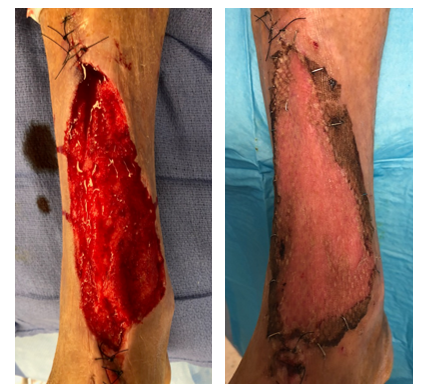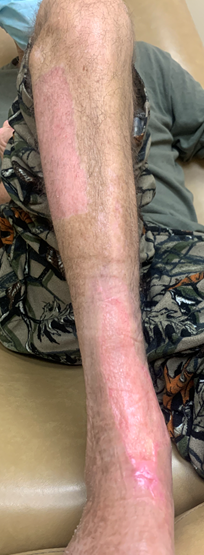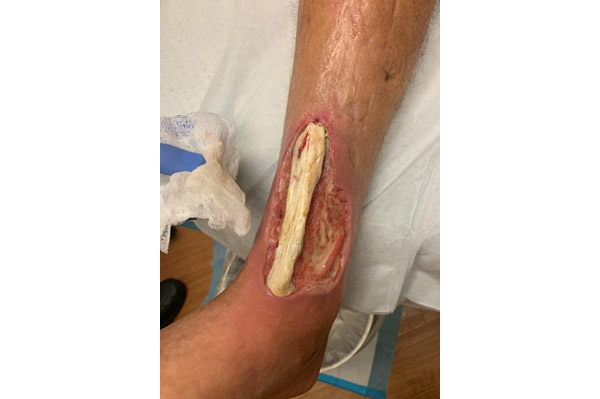I have spent the last several years making nutrition a major focus of my wound care practice, and I think it has revolutionized the way I manage patients. It would be ideal if all my patients could be evaluated by a registered dietician, but unless they have diabetes, insurance doesn’t pay for that so I have to do the best I can. For years I have been recommending L-Arginine to ALL patients with chronic wounds and ulcers, regardless of the results of nutritional screening. (I screen all patients now with the Nestlé Mini Nutritional Assessment because it’s quick and easy to use.) Some patients arrive in such bad nutritional shape that it’s obvious, and many times they have either just had major surgery or are about to have it. I needed a better plan for those patients, so I decided to put them on Impact®, an immunonutrition supplement containing L-arginine, omega-3 fatty acids and nucleotides designed to help meet the nutrient needs of major surgical patients.
It may be hard to tell for sure if a nutritional supplement made a difference, but I’ve had results that I think are spectacular. The first time I tried this approach was in a 58-year-old man who presented to the Wound Clinic with extensive tendon exposure which he said began 4 months earlier after minor trauma (see photo above). He was found to have arterial insufficiency and underwent an endovascular revascularization, but a biopsy was consistent with pyoderma gangrenosum, so he was immediately placed on high dose steroids.
On his first visit I noted that he had significant muscle wasting and a history of weight loss, and it was obvious that he was going to require a big operation in marginally perfused tissue while on high dose systemic steroids. He was struggling financially because he had been unable to work for several months, so he wasn’t able to afford to buy supplements. I was able to give him a 4-week supply of Impact thanks to samples provided by Nestlé. He faithfully drank two cartons a day for a month. After a month of nutritional support and treatment for PG, Dr. Efthymios Gkotsoulias debrided the tendon and performed a split thickness skin graft.

The skin graft healed completely and was still healed at a follow up visit 4 months later.

I can’t prove that the surgery went well because the patient took Impact, but he had a lot of strikes against him and the outcome was better than I had hoped. Later I will tell you more about the way we’ve protocolized an approach to supplementation with products like Impact in patients with non-healing wounds.
If you are a healthcare professional, Nestle’s Medical Hub has excellent educational resources on nutrition and supplementation. Find it here:
https://www.nestlemedicalhub.com/

Dr. Fife is a world renowned wound care physician dedicated to improving patient outcomes through quality driven care. Please visit my blog at CarolineFifeMD.com and my Youtube channel at https://www.youtube.com/c/carolinefifemd/videos
The opinions, comments, and content expressed or implied in my statements are solely my own and do not necessarily reflect the position or views of Intellicure or any of the boards on which I serve.



